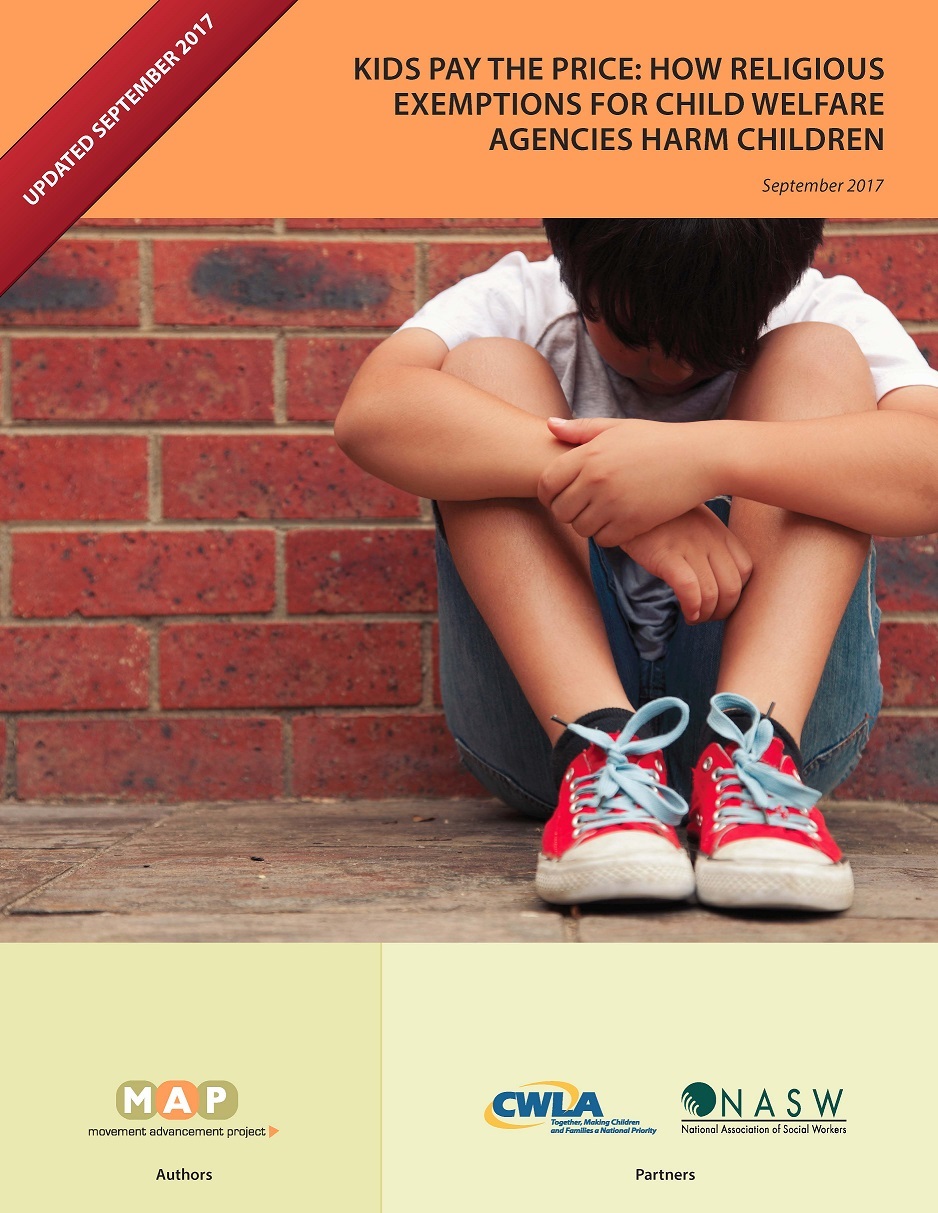The Bottom Line
Freedom of religion is an important American value, which is why it is already protected by the First Amendment of the Constitution. That freedom doesn’t give people the right to impose their beliefs on others or to discriminate. Yet a growing number of states, and the federal government, have passed or are considering legislation that would allow child placement and adoption agencies to do just that, while providing government services paid for with taxpayer money.
Kids Pay the Price: How Religious Exemptions for Child Welfare Services Harm Children details how religious exemptions for child welfare providers hurt children and vulnerable families. Agencies that provide services to children and parents should focus on providing loving, stable homes for children and helping families in need. Instead, these laws encourage and enable adoption agencies and their workers to reject qualified parents who don’t share the agency’s or worker’s religious beliefs.
Rejecting qualified parents simply means a longer wait for children in government group homes and foster care rather than being adopted into forever homes,placed into kinship or guardianship placements, or reunited with their families. Families may go without supportive services, increasing the likelihood of children being removed.
As if these consequences weren’t serious enough, these laws also enable workers and organizations to prioritize their own religious beliefs when determining
treatment options for children in their care. The potential for abuse of this legislation is far-reaching, as agencies and individual workers—like all Americans—have a broad range of beliefs, and these laws would legally prioritize those religious beliefs over the best interests of children.
To learn more about the campaign and to watch the TV ad rejected by FOX New Channel as too powerful, click here.
Kids Pay the Price: How Religious Exemptions for Child Welfare Services Harm ChildrenDownload
Recommended citation:
Movement Advancement Project. September 2017.
Kids Pay the Price: How Religious Exemptions for Child Welfare Services Harm Children. https://www.lgbtmap.org/kids-pay-the-price-report (date of access).


